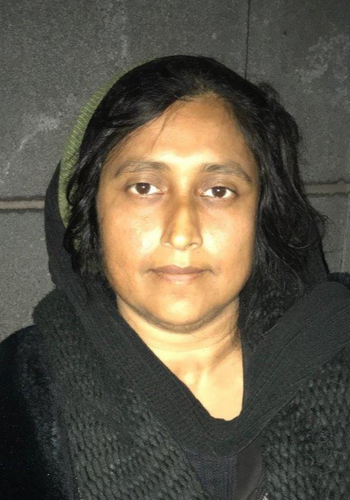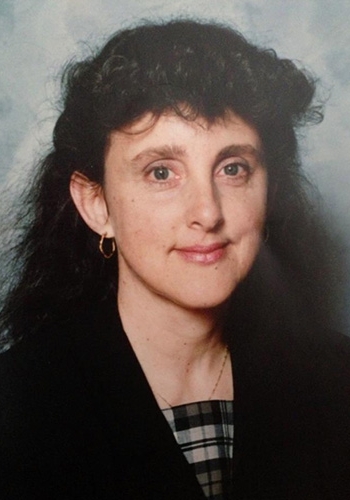Support services
Can help you and your family when someone you know goes missing.
There are a range of support services available that may be helpful in providing you with support and guidance.
Everyone’s experience is unique. There is no ‘rule book’ when it comes to missing persons, but talking about it can go some way to managing day-to-day activities.
Directory of Services
|
FAMILIES AND FRIENDS OF MISSING PERSONS SERVICES, NSW DEPARTMENT OF COMMUNITIES AND JUSTICE (FFMPS) FFMPS provides the following services to families and friends of missing people in NSW:
Telephone: Email: ffmps@justice.nsw.gov.au Website: www.missingpersons.justice.nsw.gov.au Facebook: www.facebook.com/missing.persons.501 |
|
|
CENTRECARE Telephone: Website: www.centrecare.com.au |
|
|
COMPASSIONATE FRIENDS Website: www.thecompassionatefriends.org.au/ |
|
|
DADS IN DISTRESS Website: www.dadsindistress.asn.au |
|
|
GRIEFLINE Telephone: Website: https://griefline.org.au/ |
|
|
KIDS HELP LINE Telephone: Website: www.kidshelpline.com.au |
|
|
LIFELINE Telephone: Website: www.lifeline.org.au |
|
|
MACKILLOP SEASONS Telephone: Website: https://www.mackillopseasons.org.au/ |
|
|
RELATIONSHIPS AUSTRALIA Telephone: Website: www.relationships.org.au |
|
|
BEYOND BLUE Telephone: Website: www.beyondblue.org.au |
|
|
SANE Australia Telephone: Website: www.sane.org |
|
|
BLACK DOG INSTITUTE Website: www.blackdoginstitute.org.au |
|
|
ALZHEIMERS ASSOCIATION Telephone: Website: www.fightdementia.org.au |
|
|
13YARN Telephone: |
|
|
MensLine Telephone: |
Personal health and wellbeing
When someone goes missing it is important to remember to make some time for yourself and your family. You should consider the following:
- Physical needs: Are you sleeping enough, eating healthy, exercising where possible?
- Emotional needs: Are you experiencing unexpected emotional changes? Do you need to seek professional help, or talk to someone about how you’re feeling/what you’re experiencing? Acknowledging your feelings is important for best management.
- Communicating with others: Are you reaching out to others, accepting support offered, and letting friends and family know how they can help?
- Taking care of each other: Are you talking about your feelings with your family, encouraging children to do the same, and arranging activities with friends, neighbours, relatives or colleagues?
- One day at a time: Are you keeping your routine and making sound decisions? Personal judgement may be affected when making significant life changes. Routine and everyday tasks, can help you to remain grounded during unexpected and emotional situations.
If there are children in your family affected by the disappearance of a missing person, notify the children’s school. School counsellors may be a helpful resource in supporting them, and will know what to do in this situation.
Together with the NSW-based Families and Friends of Missing Persons Unit NSW (FFMPU), the NMPCC has developed a series of fact sheets about supporting families and friends during the experience of a person’s disappearance.
You may also find it useful to seek counsel from your General Practitioner. It’s important they understand, however, that the ‘ambiguous’ loss of a missing person is very different to grieving for the loss of someone who has died, where the outcome is known. When someone goes missing, the uncertainty surrounding what has happened to them, whether they are safe and well, or whether they have met with foul play, can be all-consuming; you may cycle through a range of different feelings each day dependent on what you think has happened to them on any given day. For this reason, the NMPCC developed a support framework for families and friends of missing persons: Supporting those who are left behind (PDF 1MB). You can request a copy from the NMPCC and provide this to your General Practitioner.
You can also turn to support services. And remember, the disappearance of someone you love is a unique experience.
Writing and remembrance for missing persons
Finding ways to appropriately remember your missing person can be difficult. Consider visiting a public place of remembrance dedicated to missing persons:
- Doorway of Hope Missing Persons Remembrance Garden at The Worona Cemetary, NSW
- Missing Persons Memorial in Mandurah, WA
- Memorial garden for missing persons River Derwent at Margate, TAS
- Public bench at the rotunda in Glebe Park, ACT
- Garden of Hope and Remembrance in Bardwell Valley NSW
- The South Carlton Gardens park bench located near the entry at Nicholson and Gertrude Streets Melbourne, VIC
- Mesa Oak tree planted in recognition of International Missing Children’s Day at the National Arboretum, Canberra ACT.
If you know of any other spaces dedicated to the memory of missing persons, please contact us so they can be added to our list. You may also decide to create your own temporary memorial that you can visit or use.
Writing about your experience or keeping a diary can also help, and potentially help others going through a similar experience. While you may wish to write for therapeutic reasons, you may also want to consider sharing some of your ‘memos’ with newspapers, magazines, or on blogs so that others can better understand the uncertainty surrounding the disappearance of a family member or friend.





